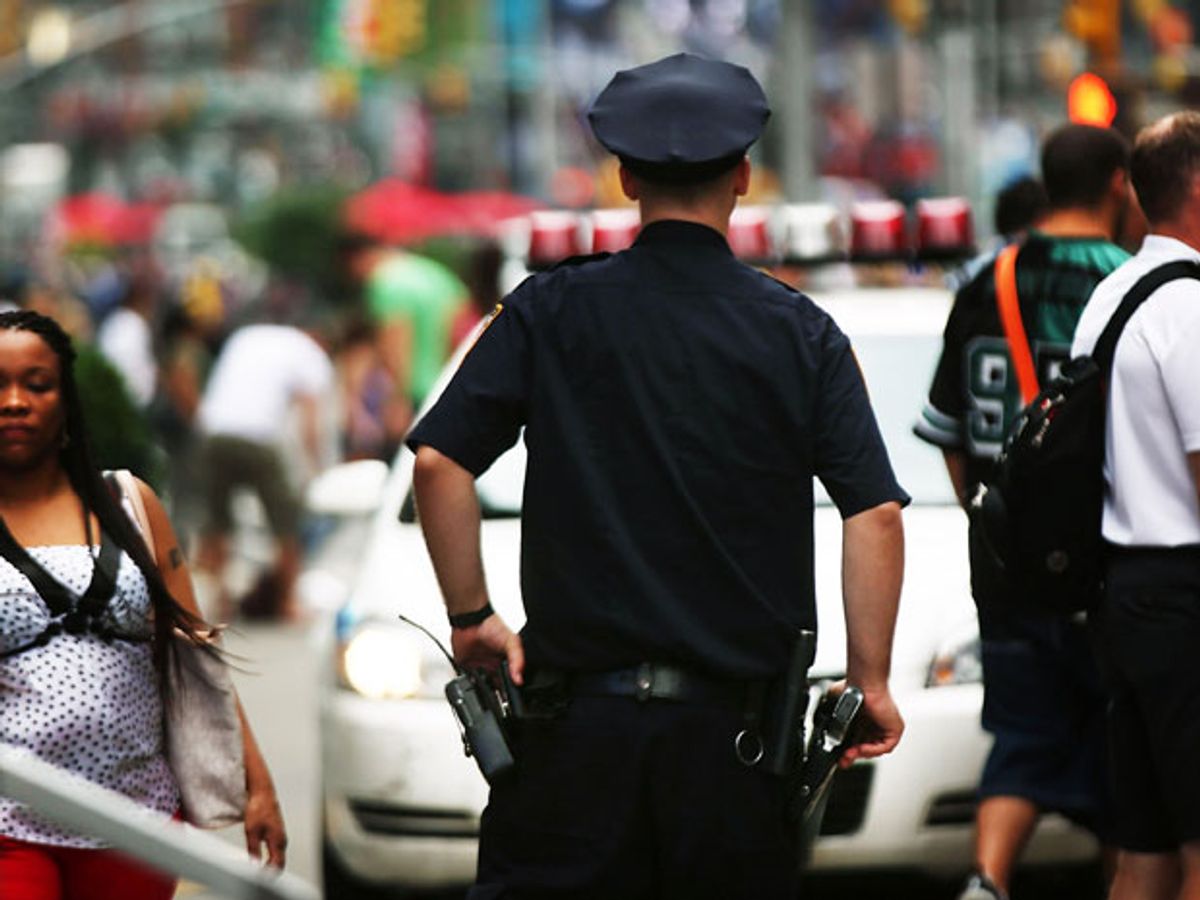New York City police officers could soon join other police departments in wearing small surveillance cameras on the job. A judge's ruling against the NYPD's stop-and-frisk practice on Monday added the camera requirement as one of several expected reforms.
U.S. District Court Judge Shira Scheindlin said that the body cameras could help create an "objective record" of police interactions with the public for supervisors to review, encourage police officers to engage in "lawful and respectful" interactions, and perhaps boost trust between officers and the public, according to the Wall Street Journal. The camera evidence could also help settle complaints regarding police behavior.
The proposed pilot program would require NYPD officers in one precinct in each of the city's five boroughs with the highest number of stops in 2012 to wear the cameras for a year. That would allow a federal monitor to assess whether the cameras' had a positive impact on reducing what the judge ruled as unconstitutional stops.
Mayor Michael Bloomberg criticized the wearable cameras order as being potentially a "nightmare" if they did not capture the full interactions between the police and suspects. But such wearable cameras have already won over police departments in states such as California, Oregon, Arizona, Utah, Texas, Kansas, Minnesota, Indiana, Ohio, South Carolina and North Carolina.
A growing number of police departments have signed on to use the Axon Flex camera offered by Taser International—a small camera that can clip onto a baseball cap or sunglasses. When officers turn on the cameras, the devices also keep a record of the previous 30 seconds preceding the "on" activation.
Such cameras helped the Rialto Police Department in California to reduce "use-of-force incidents" and complaints during a yearlong trial lasting from Feb. 2012 until 2013, according to a study touted by Taser International.
Many more police officers may end up wearing cameras, but ordinary citizens have increasingly faced legal challenges in recording police officers. States such as Illinois and Massachusetts previously used eavesdropping laws to arrest citizens who took video recordings or even photographs of police, but rulings by U.S. judges and letters from the U.S. Department of Justice have generally sided with the rights of citizens.
Photo: Spencer Platt/Getty Images
Jeremy Hsu has been working as a science and technology journalist in New York City since 2008. He has written on subjects as diverse as supercomputing and wearable electronics for IEEE Spectrum. When he’s not trying to wrap his head around the latest quantum computing news for Spectrum, he also contributes to a variety of publications such as Scientific American, Discover, Popular Science, and others. He is a graduate of New York University’s Science, Health & Environmental Reporting Program.



